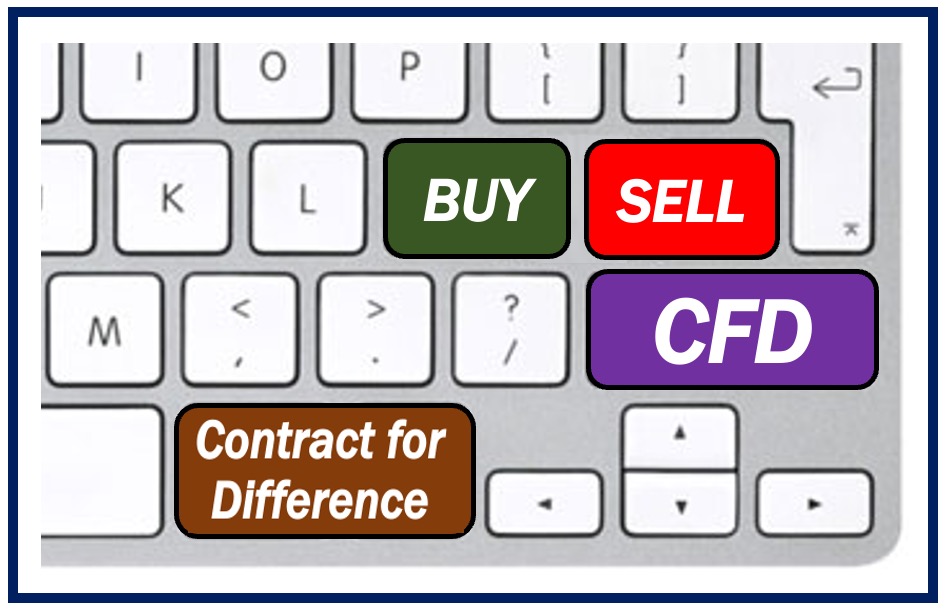CFD is a popular term you can find being thrown around on forward-thinking trading sites and brokerage platforms, but despite their high prevalence, very few people seem to know exactly what they are.
Moreover, It is not uncommon to hear a trading expert spout endless technical jargon and praise their latest oil CFD investment for making them rich, and as you would expect, this has also created particularly high interest surrounding the subject.

Well, CFDs are not as complicated as some people may lead you to believe, and when used correctly, they can be an amazing investment for traders at all levels. Let’s dive right into it and take a look at what CFDs are and what they are used for.
What is a CFD?
Before we dive into what CFDs are able to do for you and whether or not they are good investments, we are first going to give you an introduction to CFDs so you can get a comprehensive understanding of the basics.
First things first, let’s take a look at what CFD actually means. CFD stands for contract for difference – a term that essentially revolves around predicting whether or not the price of an asset will rise or fall.
This may sound a little confusing at first, but trust us; it’s not. In practical terms, this means that instead of simply buying a stock and holding it until the price rises, with a CFD, you are essentially predicting which way the stock is going to go. If you are correct, you earn the difference between the original price and the new price.
This differentiates CFD trading from regular trading in a variety of ways, some of which we are going to discuss in the upcoming sections of this article. However, if you just came to this article looking for an explanation of CFDs and nothing more, then you should be able to leave this article right now knowing that you now possess this knowledge, and we wish you the best of luck in your trading journey.
How & Why CFDs Are Used
Now that we know what CDFs are, we can now begin to take a look at a few of their uses as well as what type of investor they are well suited to. Of course, there is no one type of investor that solely trades CFDs, and there is certainly no barrier stopping anyone at any level from getting started.
However, CFD trading is usually not advised for newcomers, and it is primarily a type of investment that knowledgeable investors that have years of experience in the trade make full use of. This is simply down to how CFDs fundamentally work.
With traditional stocks/assets, trying to predict the market is ultimately not necessary, and while there are those that do, the vast majority of casual investors pay no attention to current trends and predictions. This is because you can just hold said investment for as long as required until it reaches your preferred price (that’s if it does go up in value).
CFDs just do not work like this. CFDs require you to make an accurate prediction of the market in order to make a profit, and unless you are an experienced investor with an eye for trends and speculations, then this is just not going to be a viable trading strategy.
That being said, you are completely free to do as you choose, and if you want to jump straight into trading CFDs straight away, then you do so at your own risk.
Why CFDs Are Popular amongst Experienced Investors
Despite the inherent pitfalls that come with CFDs, as you would expect, they also have their fair share of enticing positives. For one, CFDs are usually much shorter-term investments than most other options, making them a perfect choice for people that like to have high liquidity and do want to have their capital tied up for too long.
On top of this, they can also be incredibly lucrative if you know what you are doing, and it is not uncommon to hear about high-end traders focusing the majority of their efforts on CFDs alone.
This is due to the fact that CFDs are a lot more skill-dependent than most other investments, and those that know how to work the industry and spot upcoming trends can take advantage of this to their heart’s content.
This is only further exacerbated due to CFDs quick turnaround time, meaning they have a much higher profit potential and can be much more lucrative for skilled individuals.
So, how did we do? Did we manage to give you a better idea about what CFDs are, or are you still just as confused as you were at the beginning? We certainly hope it isn’t the latter.
All-in-all, CFDs are not all too complicated to understand when explained in the right way, and getting involved can be a phenomenal choice for intermediate investors and up.
As long as you take heed of the advice we have given you in this article, you should have no problems dominating the markets, and we have no doubt you are going to become a CFD pro in no time at all. Good luck.
Interesting related article:
